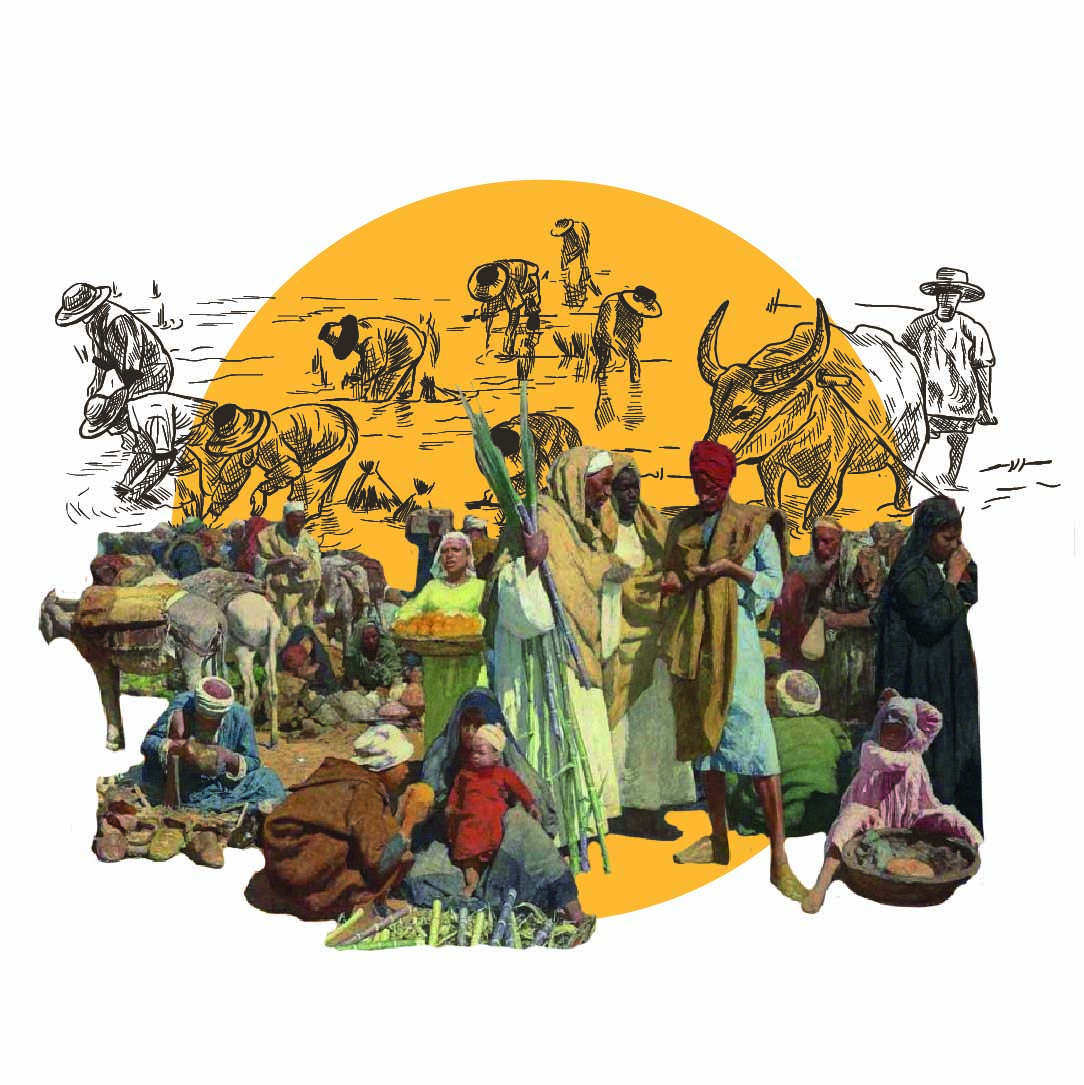
Ottoman Feudalism:
Slavery of the Land
There is nothing worse than the exploitation of human beings to work without giving them their rights, and this is one of the most forms of slavery that the Ottoman Empire practiced through its feudal system in the Middle Ages. The slave system was used in all areas. This is what made historians call it the period of Arab and Islamic decay and decline, which has never happened, and described the period of the Ottoman occupation as centuries of darkness for Muslims.
Egyptian peasants lived under the oppression and arbitrariness of the Ottoman governors. Historian Abd Al-Rahman Abdul Rahim says: “Although the peasants constituted the productive class in the countryside, they were deprived of the fruit of their production and only obtained little due to the arbitrariness of the administrative and economic systems that prevailed at the time. Their lives were between running away, getting beaten, cursed, and being very tired without a wage, and those who had a mind would lose their minds and those who had a profitable business, lost it because of injustice”.
Abdel Rahim: The Egyptian farmer was deprived of the fruit of his production.

It came to the point that the Ottomans were practicing plundering, stealing homes, violating sanctities and encroaching on property. The historian Al-Jabarti describes that “in the year 1218 AH, the soldiers who were accompanied by Suleiman Bey, the ruler of Upper Egypt, entered the town and disturbed many people, and they lived in the homes of ancient Egypt, after they had taken them out of it, and took their furniture and belongings. They did the same thing in Bulaq. Those among the peasants who oppose this are accused and killed. On that day, they hanged one person at Bab Zuweila and another in Habbaniyah. They were both farmers, and they were not guilty. It was said: They found gunpowder with them bought to keep away their aggressors from the Arabs, so they said: You are taking it to the warriors, and it was only a little amount”.
They besieged the Arab human being from every direction, so they exercised a policy of starvation against him in order to subjugate and enslave the peoples. In Mecca, the holiest place on earth, the country whose people are safe from fear, this holy land that was under Ottoman occupation, specifically in the year 1241 AH, and at the time of the Turkish ruler Ahmed Pasha, people fell from hunger and thirst, as described by eyewitness Hussein Al-Omari in his memoirs.
Al-Omari: Meccans fell from hunger and thirst.

In Medina, the Turkish governor Fakhri Pasha deprived the people of Medina of their dates and their bread. In addition, he and his soldiers seized it. They were attacking the homes of the people of the city and forcibly entering it; in order to steal all the bread and dates in it. This made people complain about hunger, until it reached the people of the city and its environs that some of them ate cats, although the warehouses were full of goods, but they were allocated to the Turkish army. The people of Medina were not allowed to taste a single date or a grain of wheat, as mentioned by the historian and writer Muhammad Hussein Zaidan – may God have mercy on him – as he was a witness and a contemporary of Fakhri Pasha’s period.


1. Ibrahim Shaaban, the Ottoman Empire … 6 centuries of terrorism, castration and harem, (Article in Sada Al-Balad newspaper, Saturday 7 September 2019).
2. Hussein Al-Omari, Hawliat Alnami Altohamia (Damascus: Dar Al-Fikr, 1987 AD).
3. Al-Eqtisadiah newspaper, Safar Berlik, an Ottoman movement, misery and displacement for the Arabs, July 16, 2018).
4. Abd Al-Rahman Abdel Rahim, the Egyptian countryside in the eighteenth century (Cairo: Madbouly Library, 1986 AD).
5. Abd Al-Rahman Al-Jabarti, A History of Wonders of Archeology in Translations and News (Beirut: Dar Al-Jeel, 1988).

